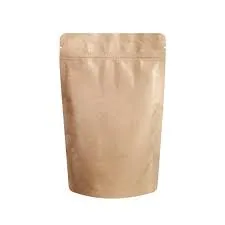- Afrikaans
- Albanian
- Amharic
- Arabic
- Armenian
- Azerbaijani
- Basque
- Belarusian
- Bengali
- Bosnian
- Bulgarian
- Catalan
- Cebuano
- chinese_simplified
- chinese_traditional
- Corsican
- Croatian
- Czech
- Danish
- Dutch
- English
- Esperanto
- Estonian
- Finnish
- French
- Frisian
- Galician
- Georgian
- German
- Greek
- Gujarati
- haitian_creole
- hausa
- hawaiian
- Hebrew
- Hindi
- Miao
- Hungarian
- Icelandic
- igbo
- Indonesian
- irish
- Italian
- Japanese
- Javanese
- Kannada
- kazakh
- Khmer
- Rwandese
- Korean
- Kurdish
- Kyrgyz
- Lao
- Latin
- Latvian
- Lithuanian
- Luxembourgish
- Macedonian
- Malgashi
- Malay
- Malayalam
- Maltese
- Maori
- Marathi
- Mongolian
- Myanmar
- Nepali
- Norwegian
- Norwegian
- Occitan
- Pashto
- Persian
- Polish
- Portuguese
- Punjabi
- Romanian
- Russian
- Samoan
- scottish-gaelic
- Serbian
- Sesotho
- Shona
- Sindhi
- Sinhala
- Slovak
- Slovenian
- Somali
- Spanish
- Sundanese
- Swahili
- Swedish
- Tagalog
- Tajik
- Tamil
- Tatar
- Telugu
- Thai
- Turkish
- Turkmen
- Ukrainian
- Urdu
- Uighur
- Uzbek
- Vietnamese
- Welsh
- Bantu
- Yiddish
- Yoruba
- Zulu
Vacuum Packaging Machine for Efficient Food Storage and Preservation Solutions
The Evolution and Importance of Vac Pack Machines in Modern Packaging
In recent years, vacuum packaging has become a pivotal process in various industries, especially food, pharmaceuticals, and electronics. Among the numerous innovations in this field, the vac pack machine stands out as a crucial tool that ensures product longevity, efficiency, and safety. This article will explore the significance of vac pack machines, their functionalities, and their impact on packaging practices today.
Understanding Vac Pack Machines
Vac pack machines, also known as vacuum sealing machines, are devices designed to remove air from packaging before sealing it. This process significantly reduces the presence of oxygen, which is a major factor contributing to spoilage and deterioration of products. By creating a vacuum-sealed environment, these machines help extend shelf life, prevent freezer burn, and maintain the food's flavor and nutritional value. The technology behind these machines has evolved over the years, with modern variants offering enhanced features such as automatic sealing, adjustable vacuum levels, and compatibility with various packaging materials.
Applications in the Food Industry
In the food industry, vac pack machines are indispensable. They are used for packaging a wide range of products, including meats, cheeses, vegetables, and ready-to-eat meals. One of the primary advantages of using vac pack machines in food packaging is the extension of shelf life. For example, vacuum-sealed meats can remain fresh for weeks or even months longer than their conventionally packaged counterparts. This not only reduces food waste but also allows retailers and consumers to enjoy greater flexibility in meal planning.
Moreover, vacuum packaging protects food items from external elements such as moisture, air, and contaminants
. This is particularly important in the case of sensitive products like delicate pastries or marinated dishes, which can easily spoil if exposed to air. By creating a tight seal, vac pack machines preserve the integrity and quality of the food, making them essential in the culinary world.vac pack machine

Benefits Beyond Food Packaging
While the food industry is the most well-known user of vac pack machines, their applications extend far beyond this sector. In the pharmaceutical industry, these machines are used to package medications, ensuring they remain uncontaminated and potent throughout their shelf life. For electronics, vacuum packaging prevents moisture and dust from affecting sensitive components, thereby enhancing product durability.
Additionally, vacuum packaging has gained traction in various consumer products, including vacuum bags for clothing and household items. This not only saves space during storage but also protects items from dust, moisture, and pests. The versatility of vac pack machines makes them an invaluable asset across multiple industries.
Environment and Sustainability
As companies increasingly focus on sustainability, vac pack machines also contribute positively to environmental efforts. By extending the shelf life of products, they help reduce food waste, which is a significant issue worldwide. Additionally, vacuum packaging often uses less material than traditional packaging methods, which can lead to reductions in plastic waste. Companies that prioritize eco-friendly practices can benefit from integrating vacuum packaging into their operations, appealing to a growing demographic of environmentally conscious consumers.
Conclusion
Vac pack machines play a crucial role in modern packaging, offering benefits that span various industries. From extending the shelf life of food products to ensuring the integrity of pharmaceuticals and electronics, these machines are instrumental in enhancing product quality and safety. As we continue to face challenges related to food waste and sustainability, the importance of vacuum packaging will only grow. The ongoing evolution of vac pack machines promises exciting advancements that will further integrate efficiency and environmental responsibility into packaging processes, solidifying their essential place in the manufacturing landscape.













